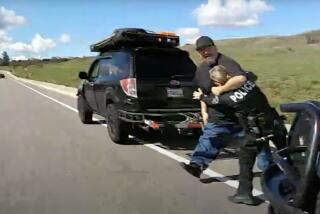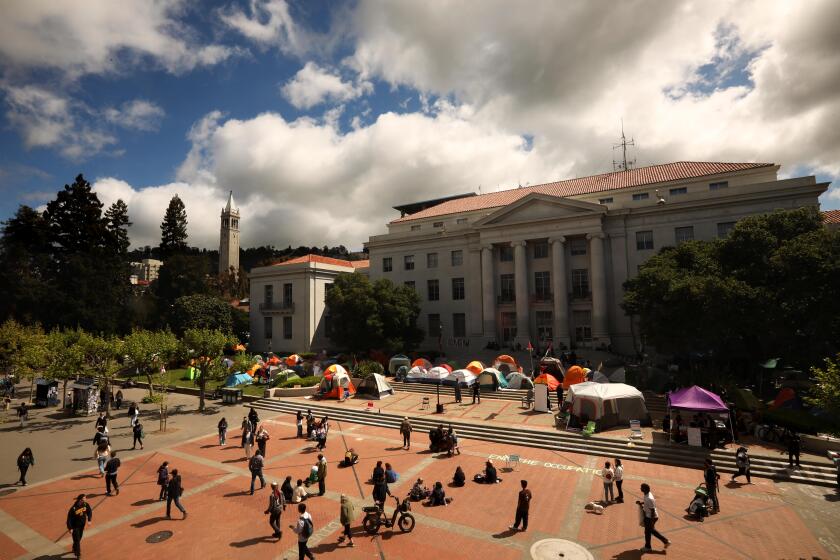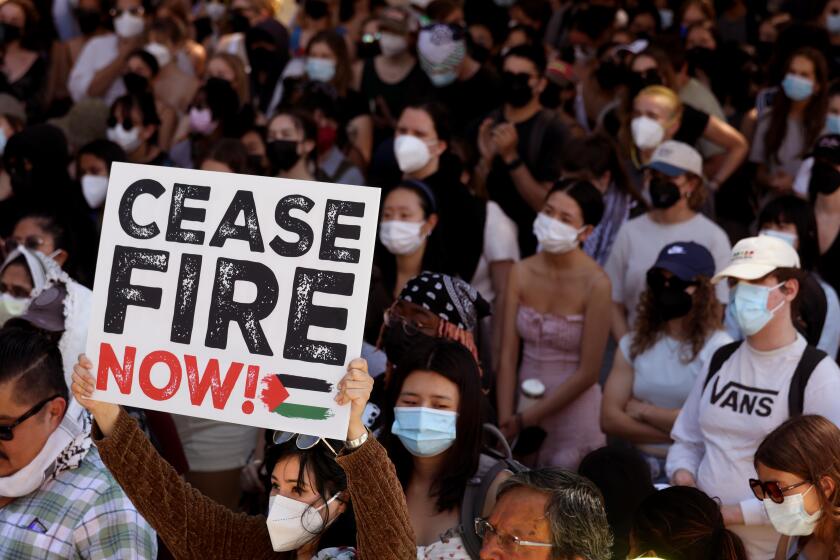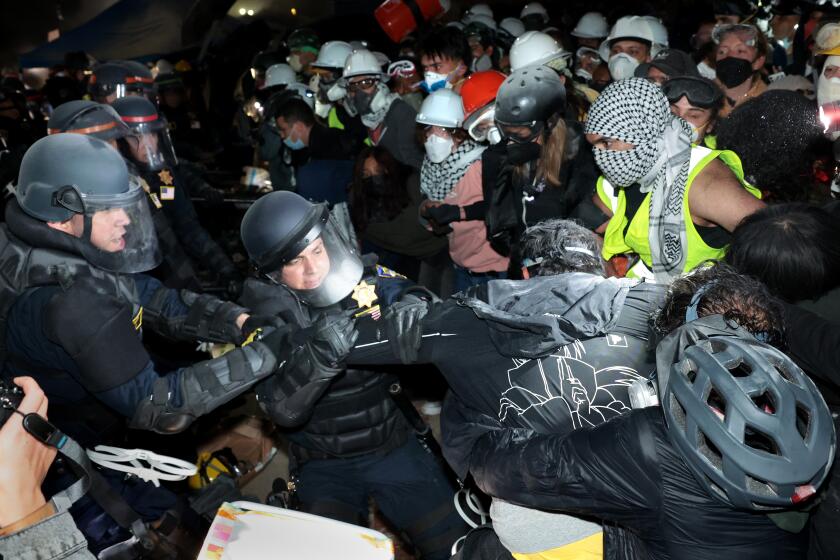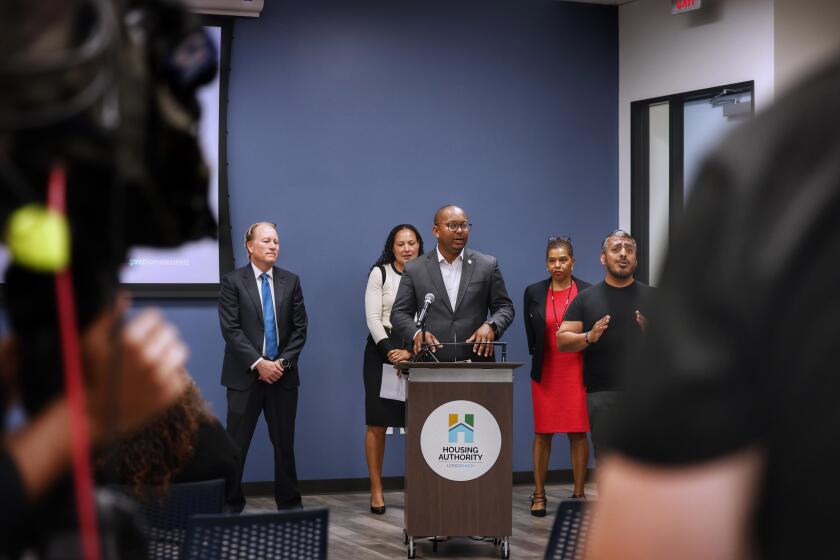City Places Tighter Controls on Church’s Homeless Camp
Slightly injured after being hit by a car during a scuffle among two homeless people camped at his church, a pastor nevertheless showed up at City Hall hoping to pay a permit fee and end the latest round of a dispute with the city over his allowing the destitute to live on church grounds.
But instead, city officials, who cited a significant increase in crime over the past three months at the First Southern Baptist Church’s makeshift homeless camp, gave the Rev. Wiley S. Drake an ultimatum: He will face prosecution at 3 p.m. Tuesday for violating an anti-camping ordinance unless he agrees to reduce by half the number of homeless people camped at the church, hire two round-the-clock security guards or cease operations altogether.
Drake said in an interview he would hire licensed guards today to monitor the 50 homeless people who live on his church’s grounds rather than evict 25 of them.
“That’s not an option for me,” he said. “Who would I kick out? The old and the maimed? Just the healthy?”
The minister and his attorneys had hoped to end a long-running and controversial dispute with the city Monday by paying permit fees required for the processing of construction plans for a shelter the church has agreed to build to house the homeless.
Drake had reached an agreement with the city in September that required him to build the shelter if he wanted to continue with what he termed a “religious mission” to house the homeless.
The agreement included strict deadlines for submitting plans and paying $7,000 worth of permit and planning fees for the building.
Donors gave the minister material and expertise to build the shelter, but Drake said he was too poor to pay the fees and unsuccessfully tried to get the city to waive them. But a last-minute check for $20,000 from an anonymous donor arrived Monday morning--Drake’s deadline--that will allow him to continue the planning process.
*
City officials, however, now have revised the September accord because the homeless camp has grown and they believe crime there has gotten more serious, from public drunkenness to assault and battery.
“It’s reached critical mass,” said Deputy City Prosecutor Gregory P. Palmer of the potential for violent crime at the church. “Something has got to be done.”
Although Drake downplayed the problems at the church, he was caught up in one squabble himself.
As he left the church Monday afternoon to meet planning officials who have been monitoring the progress of the new shelter, two people living on his property began fighting over a Social Security check. Drake placed himself squarely in front of a car driven by one of the women involved in the fight to prevent her from leaving and was thrown over the hood when she accelerated, said attorney Jon M. Alexander, who witnessed the incident.
Drake suffered a knee injury, but proceeded to City Hall. A police spokesman said the incident was under investigation.
The minister has been threatened with fines and jail time since last summer, when the city cracked down on the camp, contending it violated an anti-camping ordinance adopted last year. Officials said they began investigating the camp because of complaints from nearby homeowners.
*
Now Drake is working under the newly revised agreement reached as a compromise with the city Monday that requires him to control the homeless population. Officials said that since all the publicity about the church, the homeless population has doubled and the crimes alleged during calls to police have risen significantly.
From June through August, police were called to the church eight times for offenses such as drinking in public, fighting and domestic violence, Palmer said. From September through November, police have been called 23 times for incidents including burglary, assault and battery, trespassing, drinking, attempted kidnapping and even “making terrorist threats.”
Drake said the descriptions of the incidents sounded worse than they actually were.
“When you deal with homeless people, you have problems,” he said. “I thought that’s what our taxes paid for. . . . If we weren’t here, those problems would be spread all over the city.”
More to Read
Start your day right
Sign up for Essential California for news, features and recommendations from the L.A. Times and beyond in your inbox six days a week.
You may occasionally receive promotional content from the Los Angeles Times.

